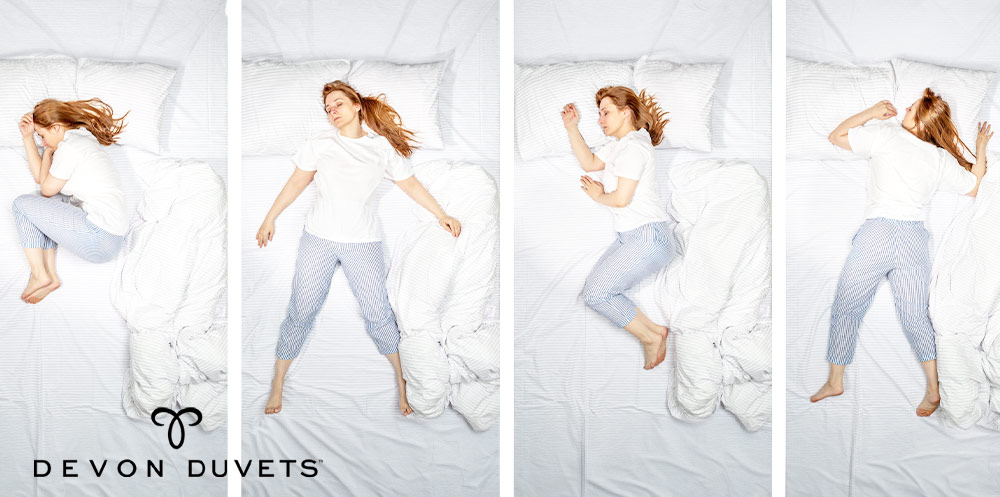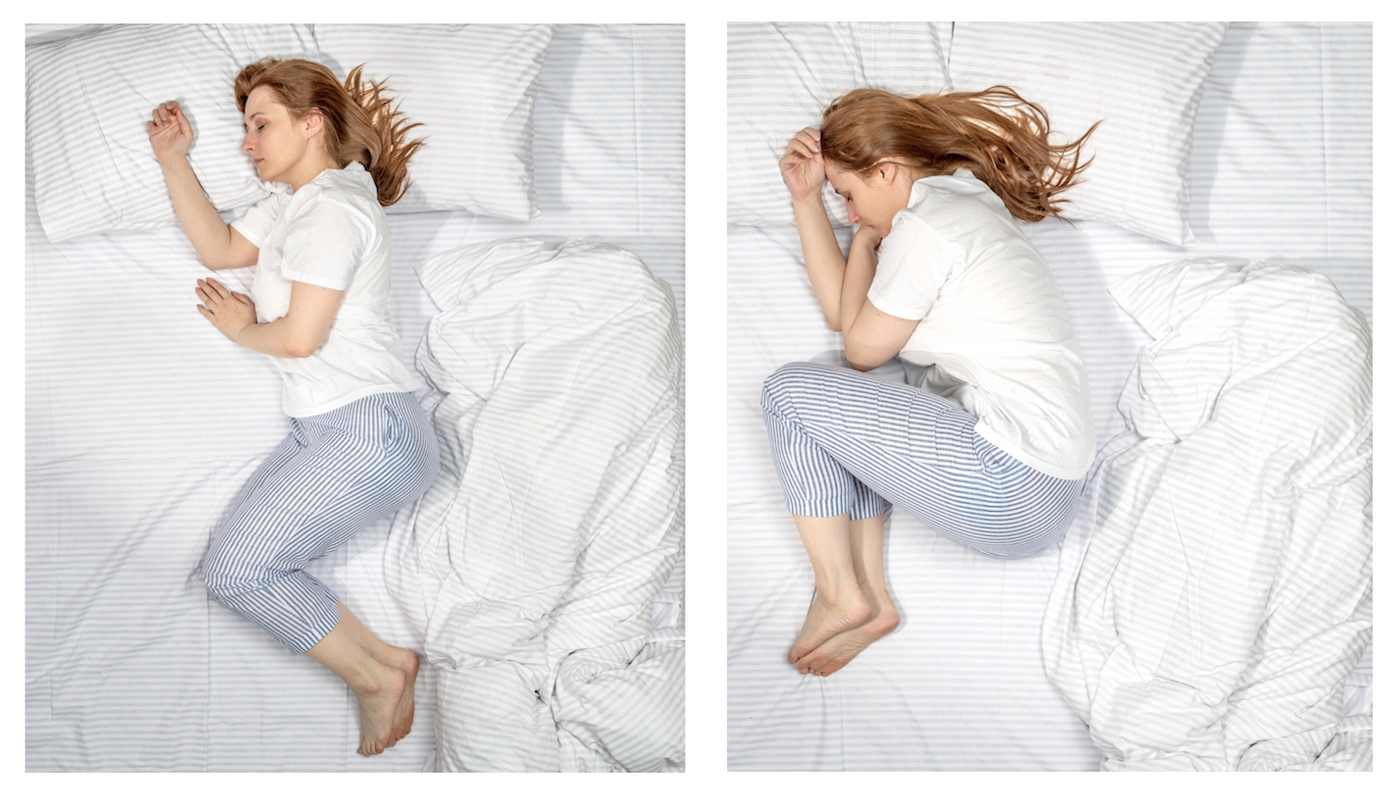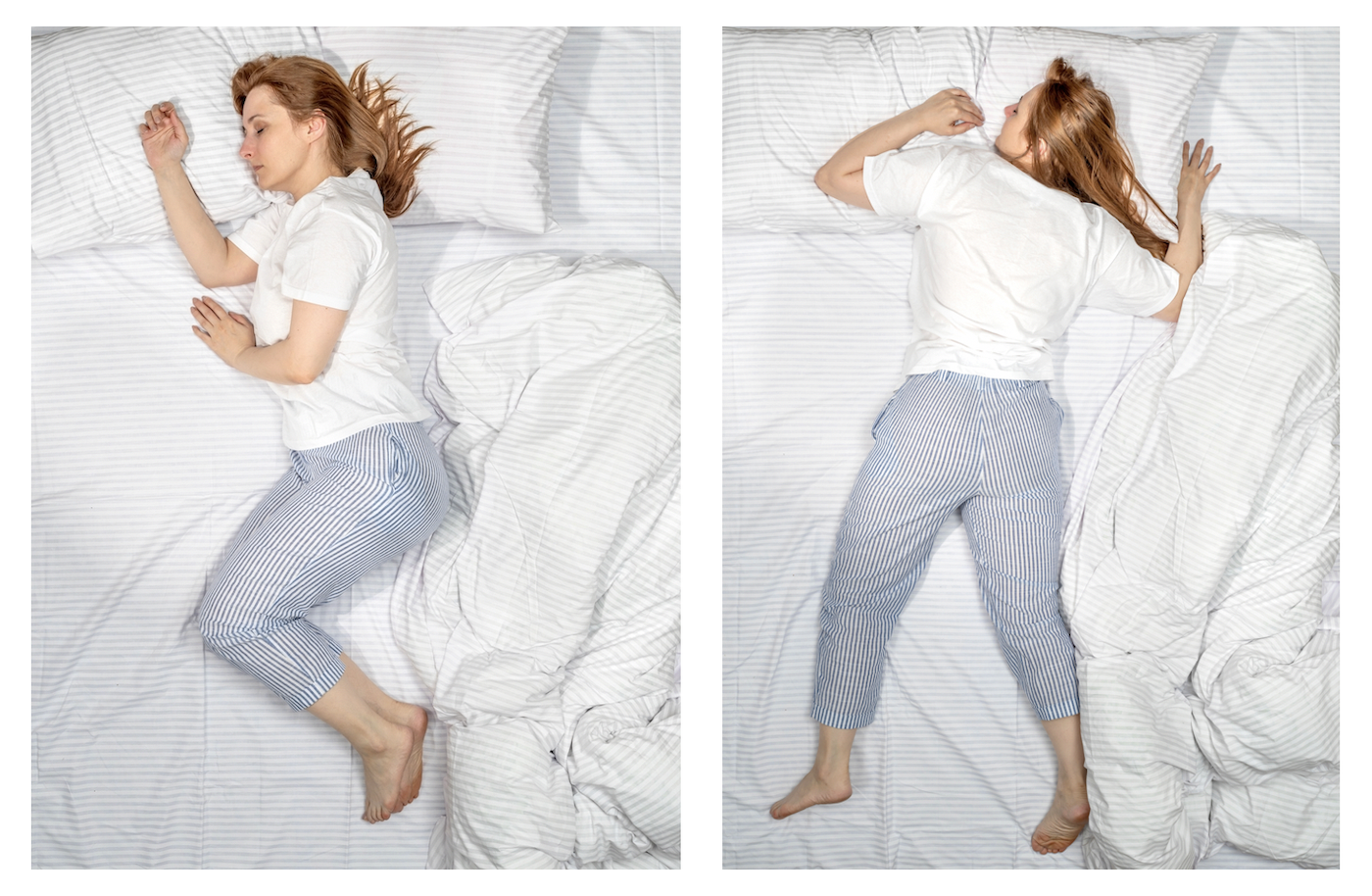What is the best sleeping position for me?

Posture, or the position of your body, whilst moving or at rest can play a role in your health and wellbeing. Posture isn’t just limited to waking hours, however, and so if you wake up feeling achy, then it could be that the position you’ve slept in is the cause.
The way you sleep can put pressure on different parts of your body, such as your spine or neck and can also affect some of your bodily functions, such as digestion. Finding the best sleep position for you can help to optimise your sleep and improve your general health.
What are the sleeping positions?
There are three main sleeping positions when lying in bed: sleeping on your side, your back or your stomach.
What is the best sleeping position?
The best sleeping position is the one that assists in good posture and prevents aches and pains, and certain health issues can be helped by sticking to one more than the others. Whilst personal preference is a factor, it is still important to remember that good posture will be of benefit whilst you sleep. We’ve discussed the three main sleeping positions below and cover some tips on which is best for certain health issues.


Sleeping on your side
Most adults prefer side sleeping and this is beneficial for many reasons. Side sleeping promotes better airflow and is usually recommended for those who snore or have other sleep related breathing issues, such as obstructive sleep apnoea (OSA). Side sleeping can also help to prevent neck and lower back pain, as this position alleviates pressure on the spine.
There are a few issues related to health whereby sleeping on your side is more likely to help you achieve a better quality of sleep – and can even determine whether sleeping on your left or right side is comfier.
Acid reflux: a common problem and most people with this tend to have worse symptoms when lying on their right side as opposed to their left side. This is probably due to the stomach having less room when pressed against the liver (which is on your right side).
Heart failure: conversely, those with heart failure may find their breathing improves when lying on their right side.
Obstructive sleep apnoea (OSA): caused by the relaxation of muscles and tissues relaxing during sleep and in some people this relaxation leads to their airway becoming blocked and leading to disrupted breathing. This can be exacerbated when the person lies on their back. Side sleeping or lying in a slightly elevated position can help to keep the airway open when used in conjunction with other treatments recommended by their doctor.
Snoring: this is different from obstructive sleep apnoea (OSA) - when it doesn’t result in disrupted breathing, this is the result of vibrations in soft tissues in the neck as air passes through the airway. Again, this may be helped by side sleeping. Your doctor can recommend additional options should the snoring continue and become chronic.
Pregnancy: we have covered sleep and pregnancy in more detail in another blog, however most care professionals recommend side sleeping. Sleeping on the left side is best because there is less pressure on the pulmonary veins (the only veins in the body that carry oxygenated blood) in getting blood from the lungs to the heart, allowing the heart to pump more easily. This position may also help improve blood flow to the uterus and foetus.
Lower back pain: This affects up to 84% adults at some point in their lives. Side sleeping in the foetal position can help alleviate lower back pain as this reduces pressure on the spine and opens up joints. If you experience lower back pain, try to avoid sleeping on your stomach as this puts added pressure on your spine and increase the pain. Making sure you have the correct neck support will also help to ensure your spine is aligned correctly when you sleep. Our range of folding pillows can help you to achieve this (there’s more about our folding pillow range later in this blog).
Sleeping on your back
Around a third of people tend to sleep on their back, making it the second most common position to sleep in. It’s also called the ‘supine’ position. The spine stays elongated and so people with lumbar spinal pain may find relief if they need to alternate this with side sleeping. A smaller or flatter pillow, such as our 2-fold wool pillow, under the back of the knees will reduce stress on the spine. Back sleeping will, however, exacerbate acid reflux and tends to worsen obstructive sleep apnoea and snoring. If you are someone suffering from heart failure, it is usually advised to avoid back sleeping as this puts pressure on your lungs.


Sleeping on your stomach
Adults are less likely to spend time sleeping on their stomachs, with less than 7% doing so. This is because you have to turn your head to one side in order to breathe, adding pressure to the neck and spinal column, thereby increasing the likelihood of back and neck pain. However, some people just can’t get comfortable sleeping on their back or side, so if you are one of those who can only sleep on their stomach, then you can minimise the potential downsides by using a flatter pillow (again, check out our 2-fold wool pillow), and avoid sleeping on a very soft mattress. You might also find it beneficial to realign your spine with gentle morning stretches. Some studies have suggested that sleeping on the stomach could reduce breathing pauses in people with obstructive sleep apnoea, although it is generally recommended that side sleeping is better for this condition.
Ensure you choose the right pillow for maximim sleep comfort
Finally, whatever your sleep position it’s important to ensure that you use the right type and height of pillow, to avoid pushing or ‘kinking’ your neck out of alignment. At Devon Duvets we have a selection of individually handcrafted pillows made with beautiful British wool. This includes our unique, patented folding pillow that allows you roll up one section to provide extra neck support. Watch the video below to find out more.
If you have any questions about our individually handcrafted range of 100% British wool pillows and which might be suitable for your needs, please do get in touch with the team on 01752 345399 or via email.
Always consult your doctor or medical professional if your health issues are causing problems with sleeping.
Ref: Sleep Foundation, Healthline.


